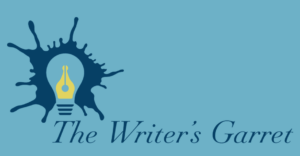Fall Series, No. 8: Memes as Lingua Franca in the New Age of Digital Poetry
Joe Milazzo’s fall workshop series, Digital Poetics & New Hybridities, brings into focus the ways that poetic expression has adapted, evolved, and expanded in the ever-changing tide of technological advancement. This three-week generative workshop will explore the how contemporary poets draw inspiration from Internet culture and experiment with creating digital poems. To find out more and register for the course, click here.
You’ve mentioned that a proliferation of new poetic forms have emerged in the 21st century. What new forms have surprised you? What experiments in form have yielded the most satisfying results in your own work?
It’s funny; in the 90s, the sexy functionality writers were to entertain was hypertext/hyperlinking. In the early 00s, it was multimedia. More recently, algorithms, with a great deal of that interest being threaded back through the labyrinthine, often analog experiments of the Oulipo. But I’m most interested in those relatively low-tech, low-barrier-to-entry forms that have emerged out of the new kinds of social interactions the Internet supports. Let’s call them memes. Sometimes they take the form of animated GIFS, sometimes (static) image macros (dead simple image + text creations), sometimes videos (I admit to a Bill Wurtz fascination), sometimes pranks aided by the technology unique to the platform (and now people Rickroll each other IRL). These forms all share in common a strong yet ironic DIY sensibility. And they’re inherently syntagmatic. Every time we scroll wearily through our Facebook feeds or peek warily at a Reddit subforum, we’re watching a new lingua franca come into being — one I would also argue is already self-aware of its rhetorical, and thus, poetic powers. In terms of my own practice, image macros have opened up all sorts of artistic possibilities. My Instagram feed is, for all intents and purposes, a coherent (if evolving) project grounded in image macro-specific constraints. (Shades of http://ytmnd.com/.)
What defines a “digital poem?”
A handwritten poem can be digital so long as it takes as its subject matter some aspect of digital experience. That could be a poem about swiping right and left late into the night. That could be an elegy for an obsolete technology. Or it might even be something like Stephanie Barber’s Night Moves, which consists of user comments on the music video for the eponymous Bob Seger song, harvested from Youtube. Poems that are native to the digital realm, however, are digital both in form and content. As a result, that form and content begin to merge in intriguing ways. Another example: Stephanie Berger’s and Carina Finn’s chapbook The Grey Bird: thirteen emoji poems in translation. In other words, a digital poem is not a genre or even a singular aesthetic hallmarked by particular tropes or techniques. A “digital poem” both documents and embodies an attention I’d describe as “so contemporary it’s futuristic.”
How can students expect to engage with the Internet in their writing?
In every imaginable way, I hope! Searching Google, copying and pasting from (or into) Wikipedia, finding answers to their questions on Quora, letting pop-up ads interrupt their reading or watching of some other “content,” playing games, you name it. The point, I believe, is to “use” the Internet while simultaneously being hyperconscious of what’s happening with our brains, eyes, hands, guts, and — dare I say it? — sense of agency in the course of the interactions that constitute that use.
What do you hope students will take away from this class?
A belief in their own power to reshape online experience, not just for themselves but for their communities as well. I want students to feel less powerless and/or less pessimistic about what the Internet is and might accomplish… but without parroting the solutionist thought leadership bromides promulgated by Silicon Valley multi-billionaires.
This interview is the eighth in our Fall Series. To read from the beginning, click here. Digital Poetics & New Hybridities will take place at The Writer’s Garret on Thursdays from October 19 to November 2. Find out more here.

